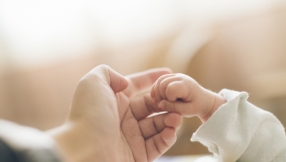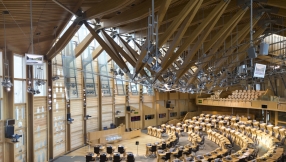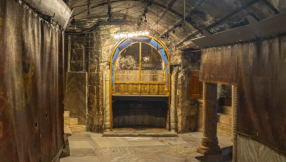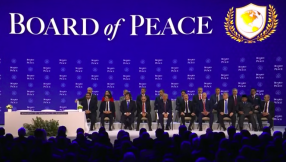It's not too much of an exaggeration to suggest that through the appalling activities of ISIS in the Middle East, we are witnessing one of the most barbaric episodes in modern human history. And unlike the horrors of the Khmer Rouge or the atrocities committed in the Rwandan genocide, nothing is left to our imagination; the hyper-connected, video-sharing modern world becoming an audience to the slaughter. ISIS strategy isn't just built on medieval torture methods, but on making sure we see them with our own eyes.
The free world is reeling. We're not quite sure how to respond to a group that seems to have no moral boundaries; that has beheaded, crucified and burned alive men, women and children. Some call for war, but they're a notoriously difficult enemy to find, let alone fight. Others struggle to form more than a few words of desperate prayer; battling even to comprehend a group which can commit such shocking acts, let alone see a way of negotiating with them.
Yet in the midst of the horror and the feelings of anger and helplessness, another, remarkable kind of response has emerged.
Last week, the brother of two of the 21 Coptic Christians beheaded on video by ISIS presented an extraordinary message of grace to the killers. Beshir Kamel thanked ISIS for including the men's declaration of belief in Jesus, saying it had strengthened his own faith. Then, asked if he would forgive his brothers' murderers, he said that his mother would open her home to the men, and ask God to open their eyes. He even prayed for the men involved, asking God that they would 'be saved.'
Meanwhile in the UK, Bishop Angaelos, the General Bishop of the Coptic Orthodox Church here, has called on Christians to forgive and pray for the militants involved. "I think as Christians that's our mandate," he told Christian Today. "It's what we do. I don't see it as being difficult."
And in Iraq, a young Christian refugee told a TV reporter she hopes God will forgive ISIS. Myriam, whose family fled their village near Mosul when the militants moved in to seize it last year, was asked by a journalist from the Christian station SAT-7 if she would want to retaliate to the group. "I won't do anything to them," she replied. "I will only ask God to forgive them."
BBC Trending reported on a video made by young Egyptian Christian Anne Alfred, which had gone viral in her home country in the wake of the slaughter. The video, which calls for forgiveness and peace instead of anger and hate, was watched over 500,000 times in the week following the murders. Quoting Jesus with the words 'forgive them father, for they know not what they do', Alfred's video struck a chord with Christians and Muslims in Egypt and beyond.
The golden thread running through all of these stories - and others like them - is this remarkable notion of forgiveness, even in the face of unspeakable horror. And at a time of breathtaking inhumanity, we should allow ourselves to be equally struck by the shocking nature of this response. People who've been directly bereaved, who've lost their homes, whose lives as they knew it are over forever, expressing grace, forgiveness and peace to the very people who caused their pain. What kind of power produces that much strength?
I don't think we should underestimate the power of this reaction. In the face of brutal radicalism, forgiveness is an even more radical response. The watching world is learning an awful lot about the Christian faith through this high-profile persecution, and perhaps we should be praying that even the members of ISIS will see and be profoundly affected by the behaviour of their supposed enemies. ISIS' methods might be medieval, but if they were expecting Christian crusaders to retaliate, perhaps this alternative will ultimately throw their plans, and their ideology, off course.
Closer to home, reflecting on these stories causes me to wonder: how far do my powers of forgiveness stretch? When I pray, 'forgive us, as we forgive others', how many caveats am I subconsciously hiding within that little word 'as'? Could I forgive someone who kidnapped, tortured and killed my family? I'm not sure I could. That these men and women seem so well-equpped to forgive both challenges my own faith, and convinces me that God is moving powerfully to comfort and strengthen those ISIS oppresses.
The power and the point of forgiveness is brilliantly illustrated by Bishop Angaelos, who said: "When it comes to crimes perpetrated against us, there is only one way forward, and that is to forgive. If we don't forgive what do we have? Retaliation, resentment and anger, but no solution and no closure." And of course, this is what sets Christianity apart, both as a worldview and as a faith. Forgiveness is part of the Christian DNA.
U2 frontman Bono once claimed that the only way to dismantle an atomic bomb is with love. Right now the world feels a collective lack of hope in the face of ISIS' brutality. These stories provide an extraordinary shaft of light in the gloom, and remind us that our faith thrives in the midst of persecution for good reason: at its heart, Christianity is about radical grace.
Martin Saunders is an author, screenwriter and the Deputy CEO of Youthscape. Follow him on Twitter @martinsaunders













